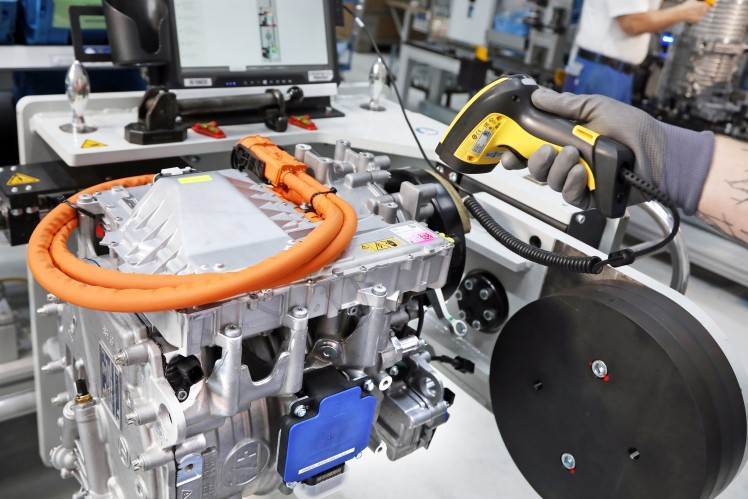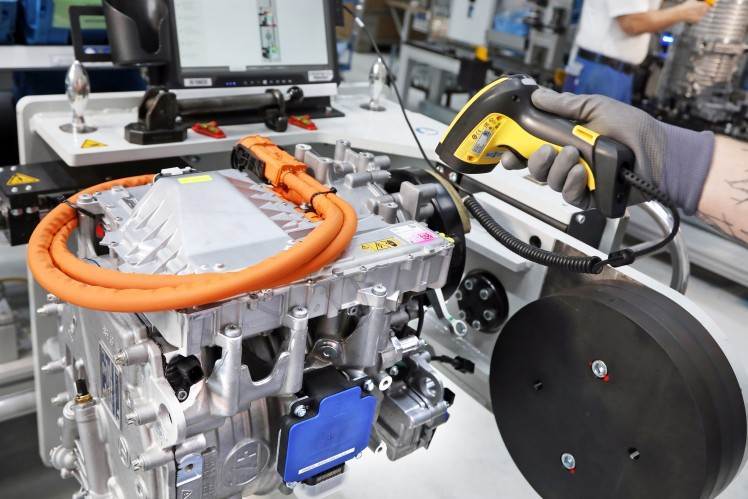ZF Friedrichshafen AG is realigning its structures to increase its competitiveness and respond to the changes in the mobility sector, particularly in the field of electromobility. Meanwhile, the company will further increase its investments in its Commercial Vehicle Technology, Chassis Solutions, Industrial Technology and Aftermarket divisions.
In a statement issued on July 26, ZF said that in the future, “its German locations are to be organized more efficiently and merged into several site networks. ZF assumes that the number of employees in Germany will be gradually reduced by around 11,000 to as many as 14,000 by the end of 2028. Due to strong competition, cost pressure and weak demand for electric vehicles, the restructuring will focus on the Electrified Powertrain Technologies division.”
“Our corporate responsibility is to position ZF for the future and to further develop our locations in Germany in such a way that they are sustainably competitive and solidly positioned. We are aware that we also must make difficult but necessary decisions to achieve this. But we want to come up with the best possible solutions for everyone involved,” said ZF CEO Dr. Holger Klein.
“We want to consolidate the German locations and merge them into several location networks. The aim is to create an efficient production network on the one hand and an efficient organization of the research and development areas on the other,” said Prof. Dr. Peter Laier, who is responsible for Production on the ZF Board of Management.
At the same time, ZF will adjust its capacities to the expected continued weaker market demand. As a result of the new location network structure in Germany and the simultaneous adjustment of capacities in both the production and administrative areas as well as in research and development, the number of employees in Germany is to be successively reduced by 11,000 to 14,000 from the current level of around 54,000 by 2028, depending on the further development of the markets and the general conditions at the respective locations.
The extent to which reductions are planned at the locations is now being specified. The reduction is to take place in a socially responsible manner as much as possible by utilizing the demographic structure of the workforce and employee turnover. This is to be achieved, for example, through extensive partial retirement offers; severance programs are also conceivable. An even higher degree of automation and the consistent use of digitalization should also contribute to improving competitiveness.

Electrified Powertrain Technology division in focus
One focus of the strategic realignment is on the Electrified Powertrain Technology division. The global market segment for passenger car drives is highly competitive and subject to strong cost pressure. This, states ZF, “makes it difficult to cross-finance purely electric drives, which often still have low margins, with drives for conventional and hybrid vehicles. The shift towards electromobility will also lead to a decline in the volume of transmissions for conventional and hybrid vehicles, and this development must also be taken into account in this context. Another consideration is the current glaring weakness in demand for purely electric vehicles, which is leading to overcapacity in the electric-powertrain production lines that have been set up with high investments.”
In view of these factors, ZF will review and improve the workflows, processes and structures in the Electrified Powertrain Technology division with a particular focus. “Despite the current market situation, one thing is clear – the future belongs to electromobility. We have made proactive investments here and will continue to invest heavily in this area,” explained ZF CEO Klein. However, the changed market perspective and high competition for electrified powertrain technologies also require openness to cooperation as well as strong partnerships. “In addition to our own commitment – that is, to make further progress in electric mobility – we also need to examine these options.”
“The seriousness of the situation calls for decisive action to be able to adapt the company to the tougher market and competitive environment and to fulfill the foundation’s mission of securing the future,” emphasized Klein. “We want to further strengthen ZF’s robust core. This is another reason why we are working on making the company more agile to be able to react better to rapid market changes. With the measures we have now decided on, we want to strengthen our competitiveness and consolidate our position as one of the world’s leading suppliers.”
